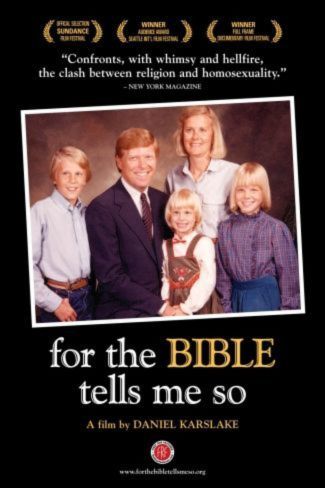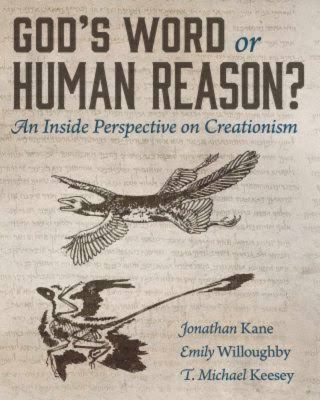Religion
The Compassionate Way to Combat Creationism
In a world where blank-slatism, anti-vaccine rhetoric, myths about the effects of parenting, and climate change denial persist and even thrive.

Like every other man of intelligence and education I do believe in organic evolution. It surprises me that at this late date such questions should be raised. –Woodrow Wilson, 1922
In a world where blank-slatism, anti-vaccine rhetoric, myths about the effects of parenting, and climate change denial persist and even thrive, it should come as no surprise that a contingent of creationist Christians continues to believe in a 6,000-year-old Earth in modern American society. After all, the prevailing attitude is to blame the religious right for most of America’s anti-science thought. However, many academics and intellectuals may be shocked to learn just how many Americans subscribe to strict Biblical literalism and the denial of evolution.
Modern Christianity and Creationist Beliefs
In 2017, almost a century after Woodrow Wilson expressed his surprise, a Gallup poll found that 38 percent of Americans believe that God created humans within the past 10,000 years. Gallup began this poll in 1982, and for most of its 35-year lifespan the trend line representing American creationism has remained distressingly flat. In 2014, for example, the figure sat at 42 percent. Despite decades of persistent efforts by scientists, writers, and communicators to bring the reality of evolution to the general public, over a third of Americans believe in the truth of the biblical book of Genesis. Why has Western academia failed to reach the creationist demographic?

Line graph showing America’s change in attitude towards evolutionary science over the past several decades. (Data from 2017 Gallup poll.)
Clearly Wilson, along with many modern intellectuals, underestimated the powerful, long-term effect a cultural divide can have. The divide that existed in his time is, if anything, deeper today. When Wilson first ran for president, his two major opponents also believed in “organic evolution”: William Howard Taft was a Unitarian who didn’t even believe in the divinity of Jesus Christ, and Theodore Roosevelt was an avid amateur naturalist who later wrote an article on the evolution of mankind for National Geographic. But nowadays conservative U.S. politicians cannot claim a belief in evolution and hope to be successful. Some sidestep the issue by saying that we should “teach the controversy,” such as President George W. Bush: “Both sides ought to be properly taught … so people can understand what the debate is about.”
Other conservative politicians have no problem ducking the question, since they emphatically disagree with the widely-accepted answer. In a speech delivered at the Liberty Baptist Church in Hartwell, Georgia, in 2012, Republican Paul Broun declared:
All that stuff I was taught about evolution and embryology and (the) Big Bang Theory, all that is lies straight from the pit of Hell. And it’s lies to try to keep me and all the folks who were taught that from understanding that they need a savior.
Not only was the man who uttered these words a congressman at the time—he was also a member of the House Committee on Science, Space and Technology as well! Anti-evolution sentiment has not only survived since Wilson’s day, it is thriving.
The question, of course, is why?
Modern Christianity and Attitudes Toward Homosexuality
In 2015, the Pew Research Center released the latest national data from another study which, since it was launched in 2007, has provided remarkable insight into the shifting demographics of American Christian culture. This Religious Landscape Study documented the myriad ways in which religious attitudes and beliefs have—or haven’t—changed across the U.S. over the past decade.
While the percentage of Americans who claim belief in god has changed only modestly since 2007 (89 percent in 2015, down from 92 percent), one much more significant change has garnered considerable media attention: Christians across all denominations are more accepting of homosexuality than ever before, with 54 percent agreeing with the statement “homosexuality should be accepted by society,” up from 44 percent in 2007.
This change in attitude, which now represents a remarkable majority of American Christians, has occurred by differing but consistently positive degrees across the broad spectrum of Christian faith, including those most historically opposed to homosexuality. For example, Evangelical Protestants, who constitute a sizeable chunk of white southern fundamentalists, have increased in acceptance of homosexuality from 26 percent in 2007 to 34 percent in 2015.
Their African-American denominational compatriots, who identify as “historically black Protestants” in the Pew Research Center poll, are ahead of the progressive curve with an increase from 39 percent who accepted homosexuality in 2007 to 51 percent in 2015. Mormons, a particularly conservative denomination, have changed from 24 percent to 34 percent. By contrast, Catholics have experienced one of the largest increases, from 58 percent to a whopping 70 percent in 2015, a percentage which creeps towards that of non-Christian faiths (76 percent in 2015).
These numbers are remarkable, especially when compared to the galling data on attitudes towards evolutionary theory. In the case of the 38 percent who subscribe to a young earth in the Gallup poll, the disagreement is more obviously partitioned by denomination, with a 2008 Pew Research Center report showing a large gap between American Protestants and Catholics: 35 percent of Catholics explicitly reject evolution, compared with 58 percent of all American Protestants.
In both cases, parochial Christian views of evolution and of homosexuality have similar origins in biblical inerrancy. But some have argued that it is even more difficult to maintain an internally consistent set of beliefs as a Christian who accepts homosexuality than as a Christian who accepts evolutionary science. The New Testament makes it clear that many Old Testament laws no longer apply—for example, the prohibition against eating pork and shellfish. However, in the case of homosexuality, the apostle Paul reiterates the restriction against homosexual behavior in the New Testament.

So, why has the percentage of American creationists barely changed in the past decade, while at the same time Christians have become much more accepting of homosexuality? While it may seem appalling that so many Americans reject a scientific theory as well-supported as evolution, it also provides a sort of natural control condition for better understanding how an archaic religious attitude may come to eventually change.
‘For the Bible Tells Me So’
What has ‘theology’ ever said that is of the smallest use to anybody? When has ‘theology’ ever said anything that is demonstrably true and is not obvious? What makes you think that ‘theology’ is a subject at all?1
Richard Dawkins, one of the world’s most prominent critics of creationism, wrote this in a 1998 editorial for Free Inquiry entitled ‘The Emptiness of Theology.’ Statements like this one openly mark Dawkins and similar writers as “outsiders” to religious culture. Religious outsiders can only ever “preach to the choir” (or the non-religious equivalent), without any realistic hope of reaching the 40–47 percent of Americans who side with creationism in the Gallup poll. As an example of the difficulty these authors have in reaching creationists, consider creationist Jonathan Sarfati’s objection to Dawkins’ book The Greatest Show on Earth:
Dawkins demonstrates duplicity in his lecturing of preachers. He demands that they teach that Adam was not historical, yet in his previous book The God Delusion he had called a symbolic Adam “barking mad”. In Greatest Show, he says he respects theistic evolutionists, but in God Delusion, he condemned that view.

For the Bible Tells Me So was a 2007 documentary directed by Daniel G. Karslake.
Let us contrast this attitude to the perspective taken by Daniel Karslake’s 2007 documentary For the Bible Tells Me So, which aims to provide a rich and emotional exploration of attitudes towards homosexuality in contemporary Christian American society. Weaving together narratives from the parents of homosexual children, those (now adult) children, members of clergy, and religious scholars, the film makes a cogent and compelling case for a progressive understanding of Christianity—which focuses on compassion and reason rather than Biblical inerrancy—and how that modern understanding can and should replace an outdated, parochial model.
The most remarkable thing may be the fact that, by and large, it already has. The cultural trend captured and promoted by Karslake’s film provides a fertile ground for understanding not only how religious attitudes are formed, but, crucially, how they can be unformed. As one of Karslake’s interview subjects, David Poteat remarked:
I had good kids. We had one of each sex. When my kids were growing up I said “God, please don’t let my son grow up to be a faggot and my daughter, a slut.” And he did not. He did not do that. He reversed it.
Poteat’s wife Brenda, added:
I had to realize that she was my daughter: she had the same personality, she enjoyed the same things that she did before I knew she was gay. Then I had to stop thinking about Tonia that way. Although I still do not approve of the lifestyle, it was a big burden off me, that I could relate to her better and I stopped trying to push her.
It is convenient that this 2007 documentary was released the same year as the Pew Research Center study began, because it provides a nominally reasonable example of the sort of strategy that might be convincing. Major attitude changes across a broad demographic take time and inevitably involve a large number of cultural variables that may be difficult to tease apart. But Karslake’s film is, if not a salient causative factor, likely reflective of the cultural elements that were.
The film was well-received by critics and patrons alike, was nominated for an Oscar, and went on to win a number of other awards including the Katherine Bryan Edwards Human Rights Prize and Best Documentary at a number of film festivals. Clearly, the film had a widespread and significant cultural impact. It is reasonable to conclude that it represents the kind of outreach that is effective in eroding deeply-held religious attitudes.
The film was personal, emotionally engaging, and evoked a compassion and empathy for the families to which only the coldest conservative could be immune. It also showed the thoughts and opinions of enlightened former fundamentalists, such as the interviewed Rev. Dr. Laurence Keene, who calmly and compassionately rebuts the literalist interpretations of scripture used to support intolerance for homosexuality. A brief aside explains how homosexuality is likely a productive of uncontrollable factors, including a reference to heritability studies that suggest a strong genetic contribution to sexual orientation. It shows the depths of deprivation the “enemy” can stoop to in the form of James Dobson’s “Focus on the Family,” which horrifies the traditional parents of one gay teenager in the film. Perhaps most critically of all, it also permits its audience a glimpse of the kind of tragedy that is, regrettably, sometimes the thing that ends up changing a parent’s stance.
In short, the cultural campaign against the traditionalist Christian views on homosexuality has largely been one of compassion, empathy, and reason. The campaign against creationism, on the other hand, is perhaps best summarized by the scornful quotation from Dawkins above.
Lessons from Modern Psychology
Here we can begin to see a way in which far-Left blank-slatism and the prevailing strategy to combat creationism are strange bedfellows. Both hinge on a fundamental misunderstanding of human psychology.
Let us start with my own field, behavior genetics, which has shed some light on the importance religion can have in many people’s lives. This research suggests that religiosity itself is something that varies innately between individuals, and that the predisposition to religious worldviews is in fact heritable.1 This is consistent with the finding that religious belief is a “human universal,” meaning that every human culture on planet Earth has some form of religion. The implication is that religion is more than a cultural fixation: it may be a product of our inborn psychology.
There is evidence to suggest that homosexuality, too, has a heritable component, and some research indicates that a widespread recognition of this is at least partly responsible for greater public acceptance. One of my own unpublished datasets suggests that individuals who believe a greater genetic component to homosexual behavior also have more tolerance for it, even when controlling for education and knowledge of basic genetics.
One of social psychology’s most replicated effects is also crucial to understanding this discrepancy. A significant body of research has shown that positive intergroup contact reduces bias of heterosexuals towards homosexuals. This is perhaps best represented in a 2009 meta-analysis that analyzed 83 reported effects and found a significant negative relationship between contact and sexual prejudice.2 The effect of contact on attitudes towards homosexuality has been found in college settings, has been found to be a better predictor than any demographic variable, and has been found to correlate positively with the total number of homosexuals contacted.
Creationist Christians largely occupy demographics that have little positive contact with scientists and evolution educators, many of whom react to deeply religious people with, if not outright condescension, intentional segregation and wilful ignorance.
This paradigm may seem familiar. Despite many on the Left having never personally met a Trump supporter, the results of the 2016 presidential election proved their existence, much to the shock and disbelief of most liberal Americans. “How could this have happened?” they wondered. The cultural divide evidenced by deepening political partisanship is also insulating academics and intellectuals from religious fundamentalism in the United States. With few exceptions, the strategy for combating creationism has been one of attacking and dismissing the foundation of this belief system. Yet it should be obvious that mocking someone’s beliefs does not win ideological battles.
God’s Word or Human Reason?

God’s Word or Human Reason was released in 2016 by Inkwater Press.
Almost a decade ago, the writer Jonathan Kane and I set out to try and change the unwavering creationist numbers revealed by Gallup poll trends. We wanted to take a completely different approach to just about everything that had been written about this topic by advocates of evolutionary theory. Rather than demean, mock, and ignore what creationist Christians believe, we intended to tackle some of the specific lines of creationist reasoning in an extraordinary amount of depth—such as their arguments against radiometric dating and the evolution of birds from dinosaurs—and to do so from a place of compassion and respect, and from an understanding of human nature. Crucial to this endeavor is an acceptance of the idea that Christians should be able to accommodate evolutionary science with their core beliefs about the nature of God.
With the help of several colleagues, our book finally saw the light of day early this year. Our five authors represent two Christians, a deist, and two atheists, but together we share a powerful history: we were all raised in creationist households, and each of us later rejected this ideology in favor of a scientific worldview. We are unified in the conviction that it is possible to reach creationists, but only with compassion, nuance, and an adequate understanding of what they really believe and why.
It is too early to know whether we’ve had an effect on the polling trends writ large, but we remain optimistic. As of this spring, poll data reveals the lowest level of support for creationism since Gallup started doing the poll, and the most rapid increase there’s ever been in support for theistic evolution. My co-author Jonathan has recently written an article fleshing out some what may be the most effective ways to reach creationists without alienating them. Overall, it seems that we’re doing something right—but it’s important to recognize this in moving forward.
When the apostle Paul stood before the Romans on Mars Hill in the biblical book of Acts and preached the gospel of Christ, he sought not to insult and demean this polytheistic people, but rather to present Jesus as an “unknown god” that the Romans were already worshipping without realizing it. Paul had considerable success with this method. His experience can be informative not just to religious people studying the Bible, but also to non-theists looking for an effective method of educating others about scientific topics.
Long before the advent of modern psychology, Paul understood a subtle facet of communication that seems lost on many proponents of evolutionary theory today. My hope is that this understanding of human nature—perhaps together with a dash of compassion and sensitivity—can be valuable to both the Christians and the non-theists among us.
References
[1] Koenig, L. et al. 2005. “Genetic and environmental influences on religiousness: findings for retrospective and current religiousness ratings.” Journal of Personality, 73(2), 471–488.
[2] Smith, S. J., Axelton, A. M., & Saucier, D. A. (2009). The effects of contact on sexual prejudice: A meta-analysis. Sex Roles, 61(3), 178–191.






